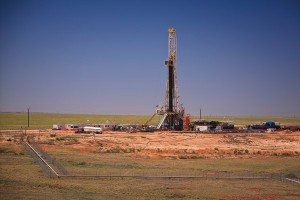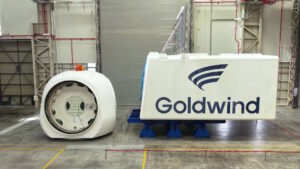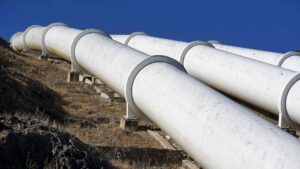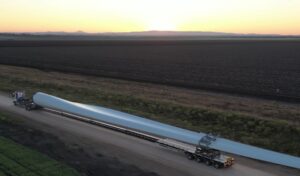Australian clean-tech start-up 1414 Degrees has announced a new project that will pair it with sustainable agriculture pioneer Nectar Farms to test “SmartFarm” applications of its thermal energy storage solution (TESS).
The South Australian company’s TESS technology stores electricity as thermal energy by heating and melting containers full of silicon, at a cost it has said could be up to 10 times cheaper than lithium batteries.
Since listing on the ASX in 2018, 1414 Degrees has signed up to a $3.2 million pilot project to install a GAS-TESS unit at an SA Water wastewater treatment plant in Glenelg, to store energy by burning gases produced in the treatment process and generate heat and electricity for the plant.
In a statement on Thursday, the company said it had been approached by energy management outfit Ampcontrol and renewables developer BE Power to assess its TESS technology for a range of joint project opportunities across Australia.
These included the integration of 1414’s grid scale storage solution, TESS-GRID, into a protected cropping farm development by Nectar Farms site in the Northern Adelaide Plains.
As we have reported, Nectar Farms is a Victoria-based agribusiness that in 2017 embarked on a $565 million expansion of its new hydroponics business near Stawell, to include a 196MW wind farm and 20MW of battery storage and make it 100 per cent renewable-powered.
And according to 1414 Degrees executive chair, Kevin Moriarty, Nectar Farms is now working with his company on a similar development, with early feasibility stages expected to get underway this quarter.
Moriarty says the project site sits adjacent to a distribution substation at an SA Water site housing a generator, and the plan is to use the substation for electricity supply and generation from the TESS-GRID while providing heat to Nectar Farms.
“There is a much bigger requirement for heat energy than for electric energy in the world, and particularly in industry,” Moriarty told RenewEconomy in an interview in late 2018.
“Batteries are no use at all in that context.”
“We do a different thing to batteries (and pumped hydro) in that we store electricity, or burn biogas, to regenerate heat and electricity,” he said.
In comments this week, Moriarty said he saw an “enormous synergy” between Nectar Farms and the entrepreneurial model of 1414 Degrees.
“The integration of our technologies would result in the first SmartFarm development of its kind globally, delivering another opportunity for our state to lead innovation, address energy costs and stability, and support job creation.”
Moriarty said the initial Nectar Farms project presented a “terrific opportunity” for 1414 Degrees to showcase how its technology could revolutionise the industry’s approach to energy storage and heat generation.
Several other development sites in South Australia and Victoria would also be assessed, he said.
“We have been modelling the revenues to be expected from operating the TESS-GRID and our smaller TESS-IND technology on the NEM. Scenarios for energy trading range from those based on contracts for supply from an aggregator to direct exposure to wholesale pricing – and combinations of both,” he said.
“These projects put 1414 Degrees front and centre in the national and international energy storage and heat generation markets, and demonstrate our commitment to delivering energy for all, at all times.”










